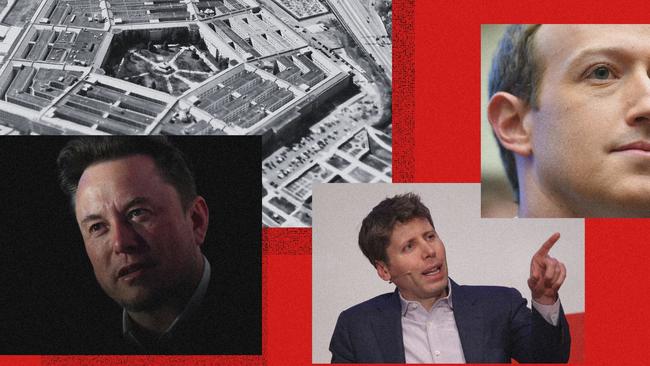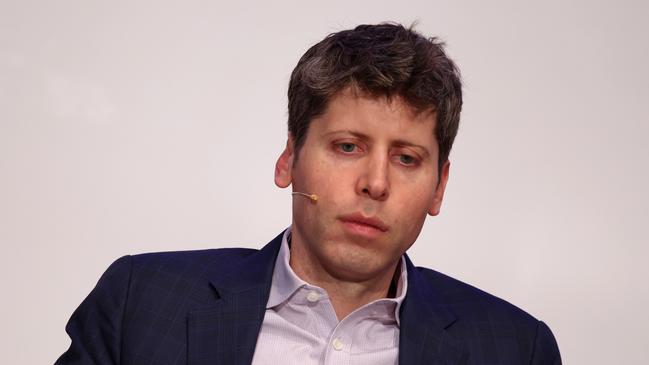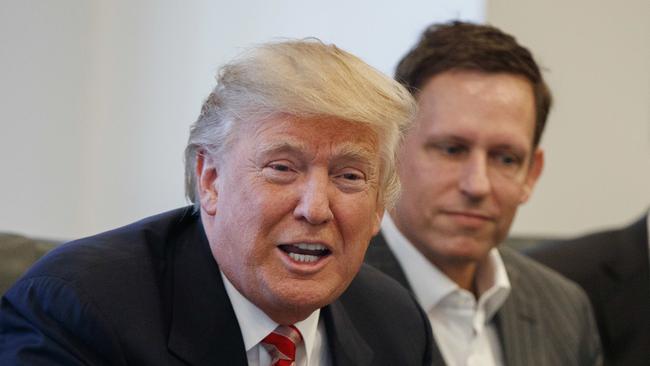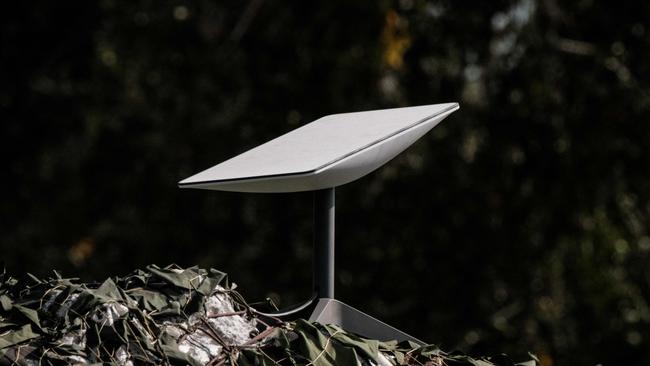Why Silicon Valley has taken up arms with Donald Trump
Big tech has changed sides as AI, war and resentment for the Democrats push it to embrace the defence sector.

Seven years ago, tech giant Alphabet faced a crisis. Employees revolted after it emerged that its Google subsidiary had agreed a drone contract with the Pentagon. Petitions were signed demanding it get out of the “business of war”.
The company caved and, under duress, drew a line in the sand, publishing a list of seven AI applications that it would not pursue. These ranged from weapons and surveillance systems to “technologies that cause or are likely to cause … harm”.
Last week, Alphabet quietly deleted those principles and signalled that it was ready to dive back into the business of war. “Google is updating its AI principles because the technology has become far more widespread, and companies in democratic nations must serve government and national security needs,” wrote Sir Demis Hassabis, the British head of Alphabet’s AI efforts.
It was the latest sign of the stunning “vibe shift” in Silicon Valley. Famed as a progressive heartland, the West Coast’s biggest firms have linked arms with the defence establishment, and Donald Trump’s administration in particular.
Alphabet’s move came just weeks after chief executive Sundar Pichai stood in the gallery at Donald Trump’s inauguration. And it isn’t alone. Meta announced in November that it had changed its policies to allow its AI models to be used by the military. San Francisco-based Anthropic said it would start selling AI to the military via a partnership with Palantir, the software giant that bills itself as the “operating system” of western intelligence and defence agencies.
Silicon Valley’s handbrake turn is, in part, both a tech story and a geopolitical one. Intelligence officials have for years been warning that AI presents a threat similar to the nuclear bomb - a technology so powerful that whoever controls it will render its enemies defeated without even firing a shot.
The release in November 2022 of ChatGPT, an AI tool that was instantly better than humans at any number of tasks, gave ballast to that argument. The AI age had finally arrived, but the West could at least rest easy knowing that America had stolen a march on China.
This sense of security was shattered last month with the release of DeepSeek, a Chinese AI model that rivalled the capabilities of America’s top companies.
Matt Pearl, director of the strategic technologies program at the Centre for Strategic and International Studies, a Washington DC think tank, said DeepSeek “sent shockwaves through the administration”. He added: “We are in an AI arms race and we saw it exponentially heat up.”

Meanwhile, leaders in the field from Anthropic boss Dario Amodei to OpenAI chief executive Sam Altman and Google’s Hassabis have all predicted recently that “superintelligence” – a system better than the best humans at all cognitive tasks – is barrelling towards us far faster than they had originally anticipated.
The stakes, in short, have ratcheted up.
At the same time, wars have broken out in Israel and Ukraine, where drones, AI, Elon Musk’s Starlink satellite-based internet service, and other technologies have taken on a central role.
Sales have soared for Anduril, the defence tech startup founded by 32-year-old billionaire Palmer Luckey, who has become a darling of the right.
Last week, it was reported that Peter Thiel was leading a $US2.5 billion funding round for Anduril that will value it at $28 billion, double its valuation six months ago, as the industry booms.

Shares in Palantir, also deeply involved in the conflicts, have exploded 13-fold in just two years.
Tech’s rightward lurch, however, runs deeper than profit motives and technology leaps.
Marc Andreessen, founder of the venture firm Andreessen Horowitz, was an enthusiastic Democrat for decades. But then, in Andreessen’s telling, the Democrat government turned on Silicon Valley as its wealth and influence grew.
Under former president Joe Biden, prominent tech critic Lina Khan was made head of the Federal Trade Commission, which pursued antitrust suits against Alphabet, Meta, Amazon and Apple.
Andreessen said that the tech industry came to be seen as “presumptively evil”.
Alarmed by this, last year he endorsed Trump.
In this shift, however, there is also a tinge of revenge from execs who felt like they had been forced to bend to worker demands on diversity, remote working and even forcing companies – as Google’s staff did in 2018 – to hue to their moral compass.
That balance of power has shifted greatly, especially in the post-Covid era, in which large employers have sacked hundreds of thousands of well-paid staff – and done better than ever.

It is no coincidence that just as Meta and Google bin their DEI policies, they have also focused on the Pentagon – a move that in another era they would have been reticent to make, for fear of upsetting their workforces.
“Companies have been really successful at laying off workers without having it hurt their productivity,” Pearl said. “So there are tech employees who might have spoken up who are less likely to do so now.”
Margaret O’Mara, author of The Code: Silicon Valley and the Remaking of America, said: “The public image that these companies had cultivated so carefully seems to have slipped away, partly in response to the real and perceived power of the new president … which is really quite extraordinary.”
The Times

To join the conversation, please log in. Don't have an account? Register
Join the conversation, you are commenting as Logout